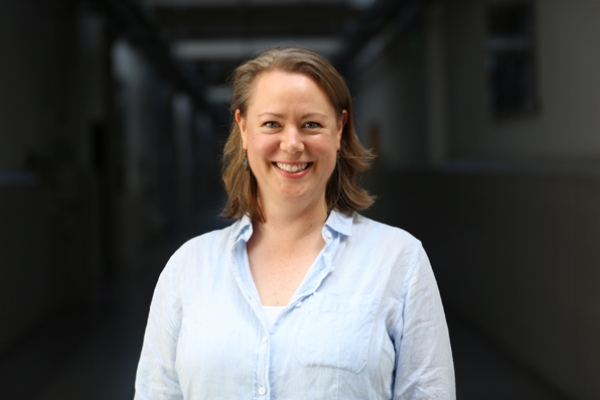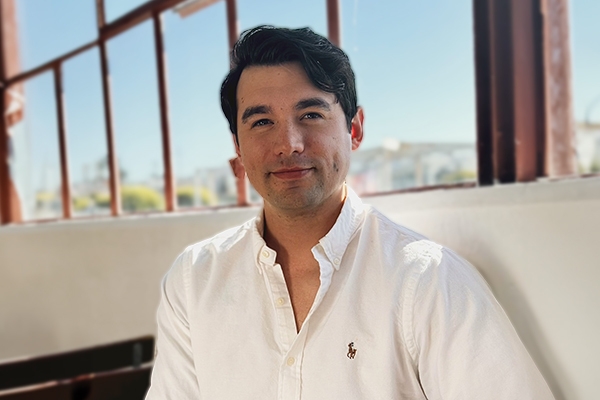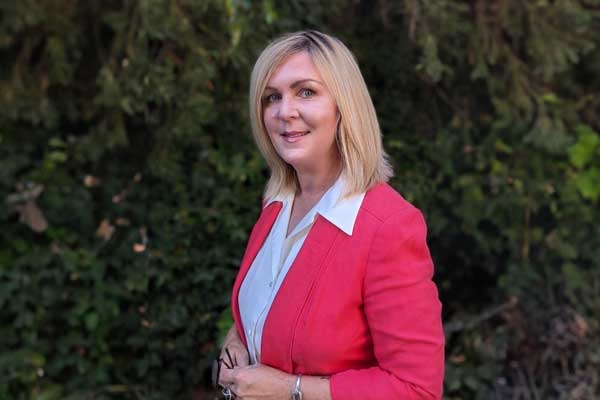Certificate Program in Project Management graduate Mark Summers is through and through a civil engineer. The field is analytical and practical, terms he would also use to describe himself. While he has excelled in this applied science field for the past 20 years, Mark thought it was time to expand his skillset.
“I spent a lot of time focusing on my analytical skills, but in recent years it became apparent to me that I needed to manage projects in order to further progress in my career,” he says.
“Most of the project managers I know had learned on the job over many years,” Mark continues. “They became adept project managers, but only in the specialized areas in which they worked.”
Mark didn’t want a niche experience. That was when he re-discovered us.
“I had taken a couple of corporate finance courses in the past from UC Berkeley Extension, which I had enjoyed,” he recalls. “So when I learned about the Project Management certificate, it seemed like a great way to move my career forward.
“I wanted to learn about project management as a whole, not just how to manage projects where I was working at the time. In the private sector, some large engineering firms are starting to require that their project managers be PMP®-certified. So I knew it would open the door to more opportunities.
“I also knew that having a certificate from UC Berkeley Extension would greatly enhance my résumé and that my chances of passing the PMP® Exam would be much higher after taking the courses—one of my last courses in the certificate was the PMP® Exam-prep course.”
Compression, of Classes
While Mark was in the Certificate Program in Project Management, he had two goals:
1. Finish our certificate program.
2. Take the PMP® Exam.
And before the birth of his second child. He managed both of his goals.
“I was working full time,” he recalls, “and taking two to three courses at a time; I believe at one point I had four concurrent courses. I also had a young child and a second child on the way. And I really wanted to finish the program and pass the PMP® Exam before my new baby was born, which I did!”
How did he fit a certificate program into his increasingly busy life? By opting for the online course format.
“I did most of my courses online, but I still enjoyed working with other students via online group assignments,” Mark recalls. “I worked with other students online to complete group projects, which ranged from a house addition to a public works project installing ‘intelligent’ crosswalks using neural networks to determine how best to time the lights depending on the number of pedestrians and the traffic. I was impressed by how dedicated and reliable the other students were. It made the process enjoyable, and our coursework products high-caliber.”
“I wanted to learn about project management as a whole, not just how to manage projects where I was working at the time.”
“I found all of the instructors to be good in different ways. Some courses were more challenging than others, but I got a lot out of all the courses.”
Especially from the PMP® and CAPM® Exam Preparation course.
“After I completed the program, I sat for and passed the PMP® Exam. It was one of the most challenging exams I’ve ever taken, and I was very happy to pass on my first try,” he exults.
Transferring Concrete Skills to the Public Sector
After years of working as a civil engineer in the private sector, Mark began to desire the professional and personal benefits that can come with joining the public sector. Those changes are advantageous to someone whose family and career opportunities are growing.
“One thing about the public sector is that instead of profit maximization being the goal—as is the case in the private sector—the goal is to maximize the benefit to the public,” Mark explains. “To me, that makes a world of difference. The public sector can pay less in gross salary than the private sector, but the benefits—such as medical and retirement—were very desirable to me.
“Also, at my previous job, I was expected to travel to various projects, which would lead to me coming home very late and not seeing my family. Now, working as a civil engineer for the Town of Moraga, which is close to where I live, ensures that I don’t have to travel far from home. I sometimes have to stay late, of course, but now at least I’m not far away.”
Getting that job in the public sector wasn’t easy, though. In a 2019 interview with Vera Kochan for Lamorinda Weekly, Mark says that he had wanted to get into public-sector work for a long time, but that the “opportunities are usually pretty competitive.” His civil engineering degrees and years of experience with GHD, Aliquot Associates, Inc., the Sufism Reoriented Sanctuary Project, ENGEO and others provided him with the skills and knowledge to be great in the field.
But it was the Project Management certificate program and PMP® certification that made him stand out in a crowd of applicants.
“The project management skills I learned were team-building, scheduling, budgeting, running meetings,” Mark says of the certificate and its projects. Having these skills is about more than completing the coursework; the curriculum has positively impacted his role with Moraga’s Public Works Department.
“Much of municipal engineering involves project management,” says Mark.
“For example, we do not have a large staff; we regularly rely on outside consultants and contractors to perform necessary project tasks that we do not do in-house. Thus, my role is often as a project manager, rather than designing or executing the work deliverables.
“The curriculum impacts my work in various ways. Mostly, it is knowing how to manage work that involves different disciplines, knowing when to be proactive, knowing where and when it is necessary to be proactive, and working collaboratively and effectively in a team environment.”
Speaking of being proactive, what advice does Mark have for others seeking career advancement with the Certificate Program in Project Management?
“Be prepared to work hard; know what you're looking to get from the program; know that much of the coursework will be done collaboratively with other students in a team environment; try to have fun—and enjoy the courses.”



